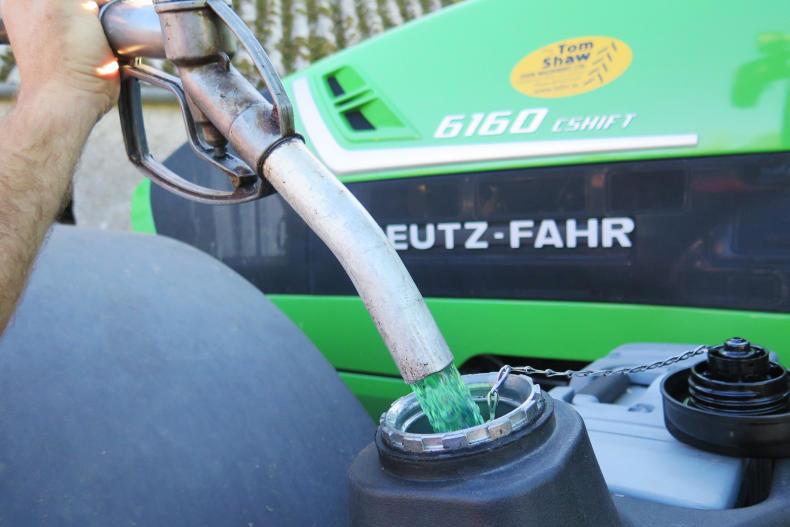Where is our energy policy and specifically, as it affects farmers, where is it going?
There are now a range of State-owned companies in the energy space – the ESB, Bord na Móna, Coillte and the merged Irish Gas/Irish Water entity now called Ervia.
In charge of this is the over-arching Government Department of Communications, Climate Action and Environment but parallel with that, we have the Commission for Regulation of Utilities.
That said, there is a whole network of conflicting aspirations and policies.
As ever, money is one of the main drivers and consumers and businesses pay an extra charge for electricity of €400m to encourage the use of renewable sources of energy – this is set to rise to €500m when some extra, new policy initiatives are unveiled.
But despite the participants in the sector, it’s difficult to find objective and economically justifiable policies underlying the decision making process.
Last week, I attended a series of lectures on the scope for gas production at farm and agri-industry level. There is no doubt that natural gas, either from reserves beneath the sea or beneath the ground or produced from farm waste, can be used in what is now quite a complete national distribution system.
The gas can be fed into the system at selected points.
While the engineering is demanding, the principle is clear but the actual delivery is a different matter with practically no on-farm gas producing digesters built here compared to hundreds in Germany and the UK.
We should welcome the budget concession (CAT) for solar electricity on farms. The cost of generating solar electricity has come down to a fraction of what it was even five years ago and what is even more remarkable is that the price of battery storage capable of conserving this electricity until it is needed has also become fully feasible.
I don’t see why credit for the energy generated should not be allowed to be offset against the overall carbon footprint and greenhouse gases emitted by the farm.
This should all be possible without even going near the whole anaerobic digestion piece.
What is difficult to grasp is why official policy seems to be veering towards importing biomass from North America to generate electricity when there is so much untapped potential in the country already and when the public service obligation funds could be used to kickstart a genuinely farmer-friendly energy policy.
Read more
Biogas payment to hit farmers' pockets
Budget 2018: what do renewable energy measures mean for farmers?
Watch and listen: gas network wants energy from farms
Where is our energy policy and specifically, as it affects farmers, where is it going?
There are now a range of State-owned companies in the energy space – the ESB, Bord na Móna, Coillte and the merged Irish Gas/Irish Water entity now called Ervia.
In charge of this is the over-arching Government Department of Communications, Climate Action and Environment but parallel with that, we have the Commission for Regulation of Utilities.
That said, there is a whole network of conflicting aspirations and policies.
As ever, money is one of the main drivers and consumers and businesses pay an extra charge for electricity of €400m to encourage the use of renewable sources of energy – this is set to rise to €500m when some extra, new policy initiatives are unveiled.
But despite the participants in the sector, it’s difficult to find objective and economically justifiable policies underlying the decision making process.
Last week, I attended a series of lectures on the scope for gas production at farm and agri-industry level. There is no doubt that natural gas, either from reserves beneath the sea or beneath the ground or produced from farm waste, can be used in what is now quite a complete national distribution system.
The gas can be fed into the system at selected points.
While the engineering is demanding, the principle is clear but the actual delivery is a different matter with practically no on-farm gas producing digesters built here compared to hundreds in Germany and the UK.
We should welcome the budget concession (CAT) for solar electricity on farms. The cost of generating solar electricity has come down to a fraction of what it was even five years ago and what is even more remarkable is that the price of battery storage capable of conserving this electricity until it is needed has also become fully feasible.
I don’t see why credit for the energy generated should not be allowed to be offset against the overall carbon footprint and greenhouse gases emitted by the farm.
This should all be possible without even going near the whole anaerobic digestion piece.
What is difficult to grasp is why official policy seems to be veering towards importing biomass from North America to generate electricity when there is so much untapped potential in the country already and when the public service obligation funds could be used to kickstart a genuinely farmer-friendly energy policy.
Read more
Biogas payment to hit farmers' pockets
Budget 2018: what do renewable energy measures mean for farmers?
Watch and listen: gas network wants energy from farms









SHARING OPTIONS